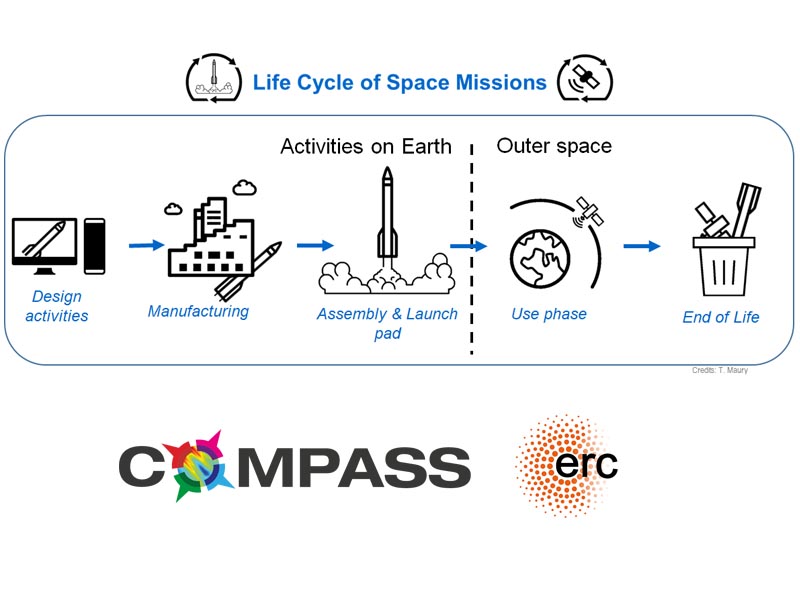
Event Details
Guido Sonnemann and Thibaut Maury Life
Leggi tutto
Event Details
Guido Sonnemann and Thibaut Maury
Life Cycle Assessment (LCA) has been identified by ESA Clean Space initiative, ArianeGroup and others actors of the space industry as the most appropriate methodology to measure and minimise their environmental impact. To demonstrate the value of life cycle thinking at complete space mission level and during the design stage of the new European Heavy Launcher, a life cycle assessment (LCA) study of Ariane 6 in exploitation phase is currently performed by the Design for Environment team of ArianeGroup.
While the space industry produces a much smaller amount of products in comparison to other industries, it is necessary to study its environmental impacts since very specific materials and processes are used combined with very long development cycles. In addition, rocket launches are the only human activity that crosses all segments of the atmosphere and stays ‘out’ of the natural environment and ecosystems.
Nevertheless, the current scope of the studies adopts a “cradle to launch pad” approach and does not take into account the end-of-life disposal of the spacecraft. With an expected growth of satellites launches associated with an increasing space debris population for the next decades, End-of-life management will be a central issue.
Via the internal R&T project « Eco-space » dealing with eco-design and Life Cycle Assessment, ArianeGroup is carrying out a large study in partnership with the CyVi group of the University of Bordeaux. Their common work attempts to improve the consideration of End-of-Life environmental concerns into the traditional LCA methods aiming at covering the overall life-cycle.
The priority has been given to the integration of space debris related impacts during on-orbit life and End-of-Life disposal within the LCA framework. Indeed, LCA studies of space missions should indicate trade-offs not only between typical impact categories (e.g. toxicity, climate change, resource depletion), but also with regard to space debris related impacts, as it is an important issue for the sustainability of space activities. The main goal is the development of a new Life Cycle Impact Assessment (LCIA) indicator regarding the potential creation of debris during the orbital lifetime of a spacecraft.
www.aero.polimi.it
Date e orari
mercoledì 21 Marzo 2018
Dalle 12:00
Luogo
Politecnico di Milano - Dipartimento di Energia - Meeting Room, 2nd Floor, Building B12, Campus Bovisa
Via La Masa, 34 - 20156 Milano
Organizzatore
Politecnico di Milano